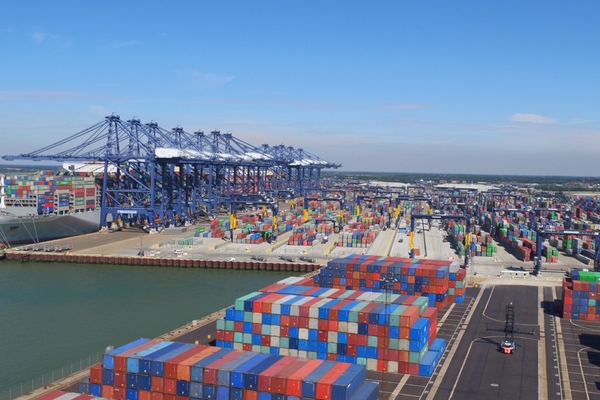UK container port progresses net zero plans
An electrification upgrade will allow the Port of Felixstowe in Suffolk to reduce reliance on red diesel, cut emissions and increase resilience of the port’s electricity network.
The UK’s largest container port in Felixstowe, Suffolk, is progressing its plans to achieve net zero.
Energy infrastructure company UK Power Networks Services has secured a contract to supply new electrical technology needed to allow the port to step away from a reliance on red diesel, reduce emissions and increase the resilience of the port’s electricity network.
Decarbonisation project
The contract marks the organisation’s first major project in the ports industry and one of its largest projects in the last five years.
The three-year decarbonisation project includes upgrading the existing 11,000-volt electricity network to supply the 17 new electric gantry cranes to help load and unload some of the four million containers they lift each year.
The electrification upgrade will also allow 48 new electric tractor units for the port to replace some of the existing diesel vehicles which transport containers around the port for distribution.
“The new electrical infrastructure and the rollout of electric cranes and tractor units will make a significant step in contributing to the port’s sustainability targets”
This project will not only help the Port of Felixstowe on its sustainability journey, but will improve air quality around the port by eliminating diesel powered cranes and vehicles.
“We are excited to be working with the Port of Felixstowe as part of [its] journey to further decarbonise the port through electrification of its operations,” said Steven Muscat, head of engineering at UK Power Networks Services.
Some 40 per cent of the country’s container traffic passes through the Port of Felixstowe.
UK Power Networks Services provides end-to-end energy solutions and helps clients decarbonise their infrastructure and realise their infrastructure as a strategic asset. It integrates new technologies such as electric vehicle infrastructure, battery storage and microgrids.
In March, Net Zero Marine Services (NZMS) acquired capital from UK Power Networks’ Green Recovery Fund programme to support a power infrastructure along the Thames and is one of 86 low-carbon projects being fast-tracked by the electricity distributor.




Leave A Comment